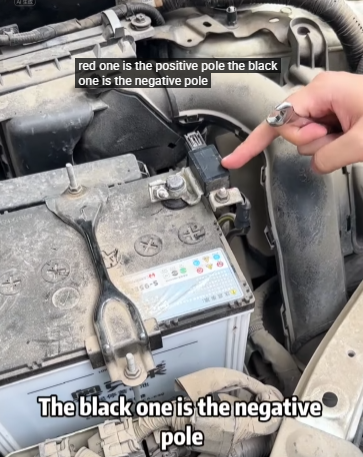
It’s one of the most dreaded sights for any driver: that small, glowing icon on your dashboard — the check engine light. Whether you’re cruising down the highway or just starting your morning commute, seeing it illuminate can instantly put a knot in your stomach. Thoughts of expensive repairs, long hours at the mechanic, and complicated engine problems race through your mind.
But sometimes, in a twist that feels almost magical, the check engine light suddenly goes off on its own. No repairs yet, no mechanic visit — just a quiet, normal dashboard again. That’s exactly what happened to me last week, and the story might help you understand why this little light sometimes pulls a disappearing act.
The Day It Came On
It started on a regular Monday morning. I got into my car, turned the key, and noticed the familiar glow of the dashboard. Most lights blink off after the car starts, but one stayed on: the check engine light.
I froze for a second, staring at it. My mind began playing through all possible scenarios. Could it be something serious like a catalytic converter issue? Or maybe something small, like a loose gas cap? I didn’t hear any strange noises, didn’t smell anything unusual, and the car seemed to drive just fine. Still, the sight of that light was unsettling.
First Reaction: Don’t Panic
I reminded myself that the check engine light doesn’t always mean an immediate disaster. Modern vehicles have sensors everywhere, monitoring everything from air intake to exhaust output. Sometimes a small hiccup — a brief sensor misreading — can trigger it.
My first step was simple: I checked the gas cap. A loose or cracked cap can cause a drop in fuel system pressure, which the car’s computer reads as a problem. I twisted it until I heard a satisfying click. But the light stayed on.

Driving with the Light On
Since there were no signs of major trouble (no rough idling, no loss of power, no smoke), I decided it was safe enough to keep driving cautiously. I avoided sudden acceleration, kept my speed moderate, and listened carefully for any new noises.
I also made a mental note to schedule a diagnostic check if the light didn’t go off in a few days. Many auto parts stores will even read your car’s OBD-II codes for free, telling you exactly what triggered the alert.
The Disappearing Act
Three days later, something amazing happened. I was driving to the grocery store, thinking about the check engine light, when I glanced down and noticed… it was gone. Just like that.
I blinked, rubbed my eyes, and checked again. The dashboard was clear. No warning lights, no problem indicators. The car was running as smoothly as ever.
It almost felt like the car was playing a prank on me. But the reality is, there’s a good explanation for why a check engine light might disappear without any repairs.
Why the Check Engine Light Might Turn Off by Itself
When your car’s computer detects something unusual, it stores an error code and turns on the light. But in some cases, if the issue doesn’t happen again for a certain number of drive cycles, the computer assumes it was a temporary glitch and turns the light off.
Here are a few common reasons this might happen:
- Temporary Sensor Glitch
Sensors can give false readings due to moisture, vibration, or electrical interference. Once the reading returns to normal, the computer clears the alert after a few trips. - Loose or Improperly Sealed Gas Cap
Even if you tighten the cap later, it might take several drive cycles for the car’s system to recognize the problem is fixed and turn off the light. - Small Emission Irregularities
Sometimes a small spike in emissions will trigger the light, but if the readings normalize, the light disappears. - Battery Voltage Changes
Low voltage during startup can cause temporary computer errors. Once the battery charges fully and the system rechecks, the light goes away.

Should You Still Worry?
Just because the light is off doesn’t mean you should ignore it completely. The stored error code remains in the car’s memory for a while, and it’s worth checking to see what caused the alert in the first place.
If you have an OBD-II scanner, you can plug it into your car and retrieve the code. Even if the light is no longer on, the code can give you insight into whether it was a minor issue or something that could return later.
My Follow-Up Check
Curious, I stopped by a local auto parts store to have my codes read. The scanner showed a pending code for an “Evaporative Emission System Small Leak.” This confirmed my suspicion that the gas cap was the culprit.
It turned out the cap’s rubber seal was a little worn, and I probably hadn’t tightened it enough the last time I filled up. I bought a new cap for a few dollars, and since then, the check engine light hasn’t returned.
Lessons Learned
This whole experience taught me a few valuable things:
- Don’t panic immediately. A check engine light doesn’t always mean expensive repairs.
- Check the easy stuff first. Gas caps, battery connections, and sensor plugs are quick to inspect.
- Drive cautiously until you know the cause. Avoid heavy loads, high speeds, and hard acceleration.
- Get the code read. Even if the light turns off, it’s worth knowing what triggered it.
Preventing Future Check Engine Light Surprises
While you can’t prevent every possible issue, a few habits can reduce the chances of seeing that little orange icon:
- Tighten the gas cap every time you refuel.
- Perform regular maintenance — oil changes, air filter replacements, spark plug checks.
- Keep an eye on your battery health, especially before winter.
- Avoid cheap or contaminated fuel, which can cause sensor and injector issues.
- Address small symptoms early — unusual smells, noises, or performance changes.

Final Thoughts
Seeing your check engine light disappear on its own can feel like a huge relief, almost like your car is saying, “Never mind, I’m fine.” But it’s always wise to take that moment as a reminder to stay on top of your vehicle’s health.
In my case, it was a simple fix and a happy ending — no costly repairs, no breakdowns, just a lesson learned about something as small as a gas cap. So if your check engine light suddenly vanishes, enjoy the peace of mind, but also take a moment to understand why it happened.
After all, in the world of cars, even disappearing lights have a story to tell.



